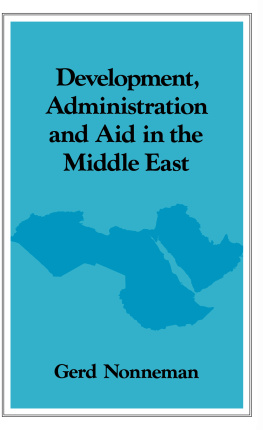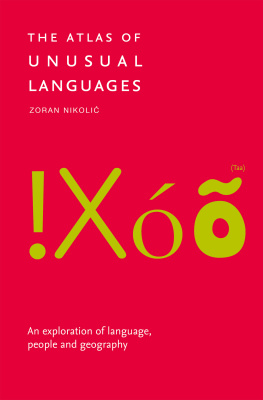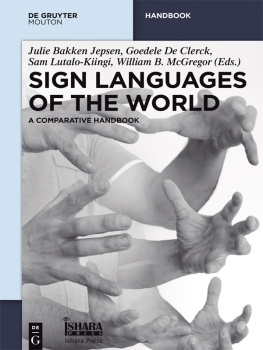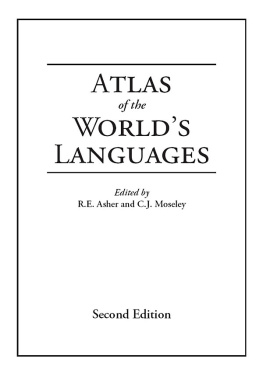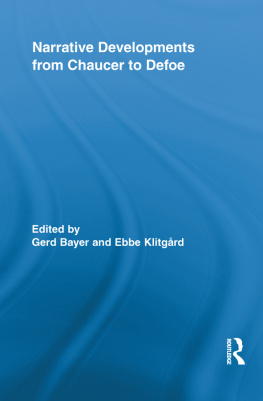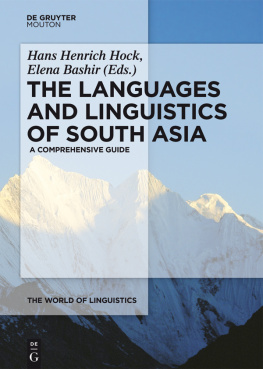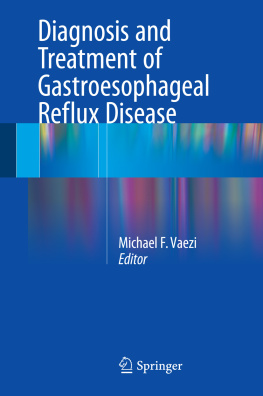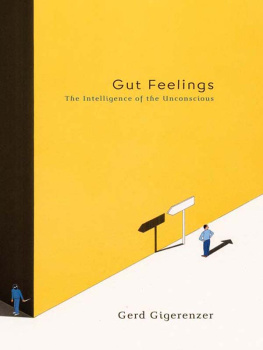Carling Gerd - The Mouton Atlas of Languages and Cultures
Here you can read online Carling Gerd - The Mouton Atlas of Languages and Cultures full text of the book (entire story) in english for free. Download pdf and epub, get meaning, cover and reviews about this ebook. year: 2019, publisher: De Gruyter, genre: Home and family. Description of the work, (preface) as well as reviews are available. Best literature library LitArk.com created for fans of good reading and offers a wide selection of genres:
Romance novel
Science fiction
Adventure
Detective
Science
History
Home and family
Prose
Art
Politics
Computer
Non-fiction
Religion
Business
Children
Humor
Choose a favorite category and find really read worthwhile books. Enjoy immersion in the world of imagination, feel the emotions of the characters or learn something new for yourself, make an fascinating discovery.

- Book:The Mouton Atlas of Languages and Cultures
- Author:
- Publisher:De Gruyter
- Genre:
- Year:2019
- Rating:4 / 5
- Favourites:Add to favourites
- Your mark:
- 80
- 1
- 2
- 3
- 4
- 5
The Mouton Atlas of Languages and Cultures: summary, description and annotation
We offer to read an annotation, description, summary or preface (depends on what the author of the book "The Mouton Atlas of Languages and Cultures" wrote himself). If you haven't found the necessary information about the book — write in the comments, we will try to find it.
The Mouton Atlas of Languages and Cultures — read online for free the complete book (whole text) full work
Below is the text of the book, divided by pages. System saving the place of the last page read, allows you to conveniently read the book "The Mouton Atlas of Languages and Cultures" online for free, without having to search again every time where you left off. Put a bookmark, and you can go to the page where you finished reading at any time.
Font size:
Interval:
Bookmark:
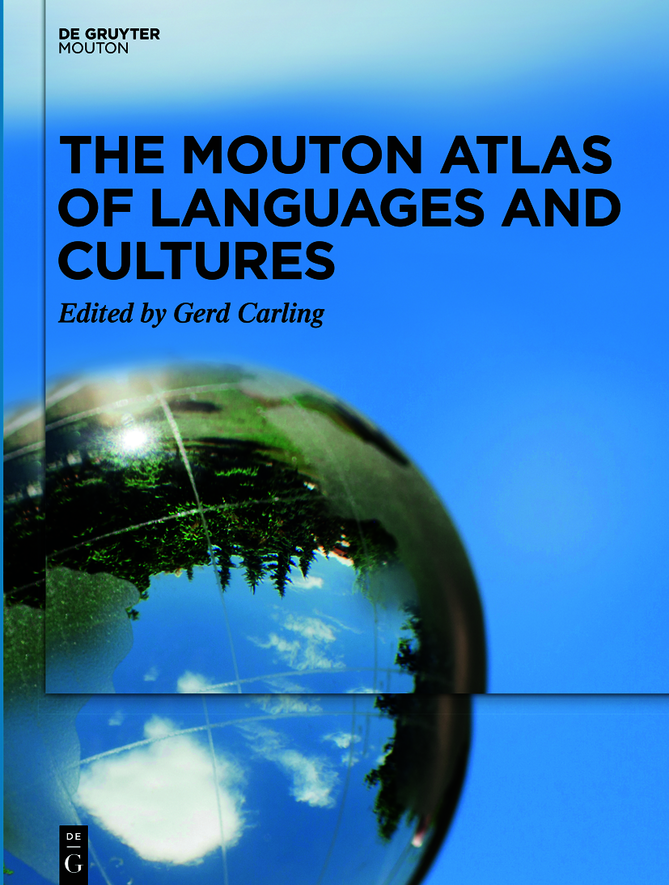
The Mouton Atlas of Languages and Cultures
Edited by
Gerd Carling

ISBN 9783110373073
e-ISBN (EPUB) 9783110393330
e-ISBN (PDF) 9783110367416
Bibliographic information published by the Deutsche Nationalbibliothek
The Deutsche Nationalbibliothek lists this publication in the Deutsche Nationalbibliografie; detailed bibliographic data are available on the Internet at http://dnb.dnb.de.
2019 Walter De Gruyter GmbH, Berlin/Boston
The current project a complete edition of the grammatical and lexical data of the database DiACL (Diachronic Atlas of Comparative Linguistics), in the form of an atlas was launched in 2013, during a conversation with Birgit Sievert at Mouton DeGruyter during the conference ICLC 12 in Edmonton, Canada. Since then, numerous people have been involved in the compilation, contribution, checking, analyzing, and visualization of the data. Several people have contributed by solutions, ideas, conclusions, methods, models, and proposals for research questions and hypotheses. Several people ought to be mentioned here.
First, I would like to thank my family for their endurance and support: my husband Tomas, my son Herman, my parents and in particular my father Hans, who unfortunately passed away during the phase of completing the manuscript. During the process, we have had many fruitful discussions on the content of this book.
Further, I wish to thank, above all, Sandra Cronhamn, Astrid Zimmermann, Elnur Aliyev, Karina Vamling, Niklas Johansson, and Rob Farren, who worked very hard, day and night, weekends and holidays, in the final phase before the initial submission of the manuscript.
For the resubmissions of the manuscript, I wish to thank Chundra Cathcart, Harald Hammarstrm, Astrid Zimmermann, Johan Frid, Sandra Cronhamn, Olof Lundgren, Ante Petrovi and Victor Bogren Svensson, whose efforts enabled an extension of the content to meet the demands of the reviewers.
I wish to acknowledge the anonymous reviewers for their suggestions.
I also wish to thank all of the caucasologists who have contributed with their knowledge and data; in particular Merab Chukhua, who shared his etymological material with us, but also Acherdan Abregov, Teimuraz Gvatseladze, Leila Avidzba, Madzhid Khalilov, Tamar Lomadze, Revaz Tchantouria, Maka Tetradze, and Larisa Tuptsokova.
I wish to thank the contributors that have been working with compiling, contributing and checking of data in various phases of the project: Anne Goergens, Josien Greidanus, Filip Larsson, Kajsa Sderqvist, and Anastasia Karlsson. I thank Ola Wikander for his valuable contribution with ancient Semitic languages, Arthur Holmer for sharing his knowledge on a number of languages, including the tricky Basque language, and Marit Julien for helping us with North Saami.
I thank Erich Round, Chundra Cathcart, Harald Hammarstrm, and Johan Frid for crucial input on methods and models and contributions with statistical and evolutionary analyses.
I am also grateful to everyone involved in solving technical issues connected to programming and statistics: first of all Rob Verhoeven, our main programmer and database designer, as well as Johan hlfeldt, Edin Kukovic, Johan Dahl, people at Lund University GIS Centre, in particular Karin Larsson, people at the Library of the Centre for Languages and Literature, in particular Ann-Sofi Gren, and Johan Frid and Mikael Novn at the Department of Linguistics, Lund University.
I wish to acknowledge Vclav Blaek for sharing with us his manuscript drafts with valuable data.
I thank Briana Van Epps for proofreading the English text.
We decided in an early phase of the production of this book to postpone the South American data, which was very important in the initial phase of our project. However, I want to acknowledge our South American colleagues for ideas and inspiration when it comes to model and method, including Chris Sinha, Vera da Silva Sinha, Ana Suelly Arruda Cmara Cabral, Alf Hornborg, and Love Eriksen.
Finally, I would like to acknowledge my former supervisors, Folke Josephson and in particular Georges-Jean Pinault, who has contributed with a number of ideas and solutions in the manuscript.
That said, I want to emphazise that the responsibility for any mistake, be it a misspelling, a misinterpreted etymology, or incorrect geographical information, remains entirely my own. Further, any theoretical proposals and suggestions for evaluations are entirely on my account.
Lund, July 11, 2019, Gerd Carling
| Carling | Gerd | Writing of text (all), project leading and coordination, theoretical and methodological design (all), database and data set design (all), control and coordination of data compilation and checking (all), data checking (all), linguistic examples (Indo-European), GIS polygon production and checking (all), checking of coding of lexical meanings for maps/statistics (all), basic statistics (all), production of figures (drawings) |
| Abregov | Acherdan | Data contribution (Caucasian lexical) |
| Aliyev | Elnur | Data compilation and checking (Caucasian and Turkic lexical/grammatical, Caucasian etymological), data contribution (Caucasian and Turkic lexical) |
| Avidzba | Leila | Data contribution (Caucasian lexical) |
| Cathcart | Chundra | Data extraction and coding (appendix2b2c), data checking, evolutionary model, contribution to text (ch. 5.7.2) |
| Chukhua | Merab | Data contribution and checking (Caucasian lexical/etymological) |
| Cronhamn | Sandra | Data compilation and checking (Uralic lexical/grammatical/etymological, Caucasian lexical, Indo-European lexical/grammatical, Turkic lexical), project coordination, contribution to theoretical and methodological design, control of database feeding and dataset consistency, edition of lexical meanings for meaning change charts, coding of lexical meanings for statistics/maps |
| Farren | Robert | Data compilation and checking (Indo-European lexical/etymological) |
| Frid | Johan | Data coding and programming, statistics (ch. 6, appendix3c) |
| Goergens | Anne | Data compilation and checking (Indo-European/grammatical) |
| Greidanus | Josien | GIS polygon production (Europe) |
| Gvantszeladze | Teimuraz | Data contribution and checking (Caucasian lexical) |
| Hammarstrm | Harald | Data extraction, evolutionary model, statistical analysis, and contribution to text (ch. 6.3.7) |
| Holmer | Arthur | Data compilation and checking (Basque lexical/grammatical, European lgs. grammatical), linguistic examples (Basque, Scottish Gaelic, Romanian, Bulgarian etc.), contribution to data set design (grammatical) |
| Johansson | Niklas | Data compilation and checking (Indo-European lexical/grammatical), project coordination, contribution to theoretical and methodological design, production of meaning change charts (ch. 6) |
| Khalilov | Madzhid | Data contribution (Caucasian lexical) |
| Kuckovic | Edin | Programming, database |
| Larsson |
Font size:
Interval:
Bookmark:
Similar books «The Mouton Atlas of Languages and Cultures»
Look at similar books to The Mouton Atlas of Languages and Cultures. We have selected literature similar in name and meaning in the hope of providing readers with more options to find new, interesting, not yet read works.
Discussion, reviews of the book The Mouton Atlas of Languages and Cultures and just readers' own opinions. Leave your comments, write what you think about the work, its meaning or the main characters. Specify what exactly you liked and what you didn't like, and why you think so.




